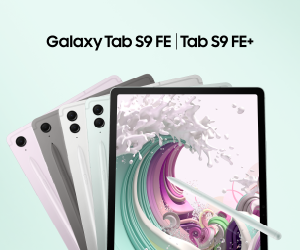We all notice that energy prices are rising; gas in particular has become considerably more expensive. This increasingly leads to energy poverty: people who can no longer pay their energy bills. There are energy-saving measures that can lower your energy bill, such as installing a heat pump or solar panels. But if your energy bill is already too high, you certainly have no money for these kinds of options. It is precisely the people who cannot afford it that are left with high energy bills. What are the options for getting your monthly payments down if you have a small wallet?
What is energy poverty?
The rise in energy prices is clear: a household now pays on average 86% more in energy costs than in January 2021 . These increased energy prices are causing many people serious financial problems. In the Netherlands, between 234,000 and 634,000 households are currently experiencing energy poverty. These are people who have too little income to pay their increasingly higher energy bills.
To give an idea of the magnitude of the problem: on average, a household spends about 5% of its income on energy bills. In households experiencing energy poverty, this is often up to 20%, calculated TNO . That is a huge chunk out of the monthly budget. People from this group often live in poorly insulated houses and therefore have high heating costs. In 75% of the cases, this is also a social rental home, which you cannot simply make more sustainable yourself. But even those who rent privately or live in an owner-occupied home do not always have the means to make it more sustainable. It is often simply too expensive or people don’t know where to start.
Counters for subsidies
The fastest way to reduce or even zero your energy bill is to insulate your home and install a heat pump or solar panels. But as said, there is a hefty price tag. Fortunately, there are initiatives such as ThuisBaas , a non-profit subsidiary of Urgenda.
At ThuisBaas they know everything about energy saving and help homeowners on their way to sustainability. For example, director Marjan Minnesma explains that there are counters where you can go for financial support if you do not have any savings for energy-saving measures. Such as the Warmtefonds, for example. “Through the Heat Fund you can borrow your investment for solar panels for example at a low interest rate. And you can also get a subsidy: the VAT that you pay is refunded.” These subsidies are arranged through the municipalities. You can immediately see for which subsidies you are eligible via the energy subsidy guide.
A loan such as with the Warmtefonds must of course be repaid; your monthly costs will therefore not immediately decrease enormously. But ThuisBaas has calculated that households can get rid of gas without increasing monthly costs. In the long run, this will pay off, according to Minnesma: “Once the investments have been repaid, you will not even have any monthly energy costs at all. With the current gas prices, you have already paid back those investments in eight years.”
 You can get a loan from the Warmtefonds to purchase solar panels.
You can get a loan from the Warmtefonds to purchase solar panels.
But what if you rent a house?
If you are a homeowner, you are in control of what you change about your home. But as a tenant you are dependent on your landlord. That is why Marjan advises you to ring the bell with your landlord: “If tenants email, call and write letters en masse to your housing association or landlord. If they feel that there is pressure and support to increase sustainability, landlords are inclined to take action more quickly. to come.”
ThuisBaas works together with housing associations to get their houses off the gas. Marjan: “The corporations then take on all investments, at a small increase in the service costs for tenants. But because the energy bill goes down, the savings are large: tenants have an average of 50 to 70 euros left over per month. When residents see this , they stand in line because they want to.”
Help from an energy coach
If you really can’t figure it out with your energy bill, you can also knock on the door of De Energiebank. They help households to keep their energy bill manageable in the short term, for example with the help of an energy coach. Aarnoud van der Deijl is such an energy coach in Haarlemmermeer: ”Energy saving is not only due to technology such as LED lamps or solar panels, but 50% is due to behaviour. That is good news, because then you can do it without major investments. already save a lot.”
The Energy Bank was launched in Arnhem in 2015, with a similar objective to the Food Bank: on the one hand, combating poverty and at the same time combating waste. In this case, energy is wasted. The Energy Bank is now active in seven municipalities. Aarnoud: “Energy poverty is not new, but lately we have seen more requests from the Energy Bank”.
 The Energy Bank hands out energy-saving items
The Energy Bank hands out energy-saving items
Energy saving box via the municipality
Another place to turn to for free energy-saving items is your municipality. According to Aarnoud, many municipalities offer a free box with items such as radiator foil, LED lamps and draft strips. That is of course a good start, but it is better to focus on what is needed, he believes: “An energy coach looks at your specific situation. In some houses you can achieve a lot with radiator foil, another house may still be able to make a profit by replacing it. from old halogen lamps.”
Saving tips for everyone
Aarnoud also sees that many households can save on white goods: “Old or cheap refrigerators and washing machines often have a low energy label. A lot of energy is lost there. Together with people, we look at whether they can buy or lease a more energy-efficient device, so that they have more money left over.”
Aarnoud also sees a lot of energy wasted by using hot water, says Aarnoud: “A water-saving shower head or a cheap hourglass can already yield a lot. If you shower one minute shorter every day, that already saves tens of euros per year. is by lowering the temperature of the central heating boiler to 60 degrees. Then the heat comes more evenly and that makes a big difference in your gas consumption.”
 With energy-saving products you can still save money without an installer or renovation
With energy-saving products you can still save money without an installer or renovation
Supporting the Energy Bank
Are you able to pay your energy bill yourself, but do you want to lend a hand to households struggling with energy poverty? Then you can donate money, time or energy-saving items to the Energy Bank. Aarnoud: “The cabinet has reduced the energy tax to accommodate people. But if you can still pay your bills easily, you can also consider making a donation. We are also still looking for energy coaches in some municipalities .”




















